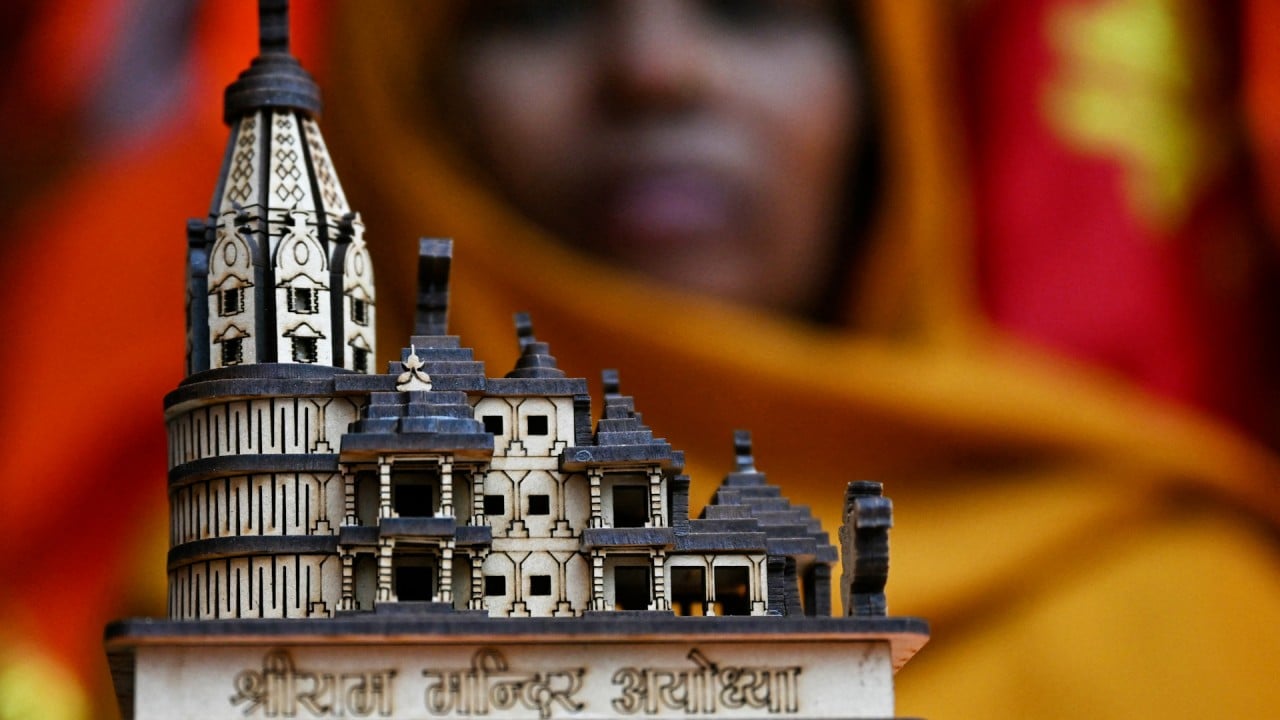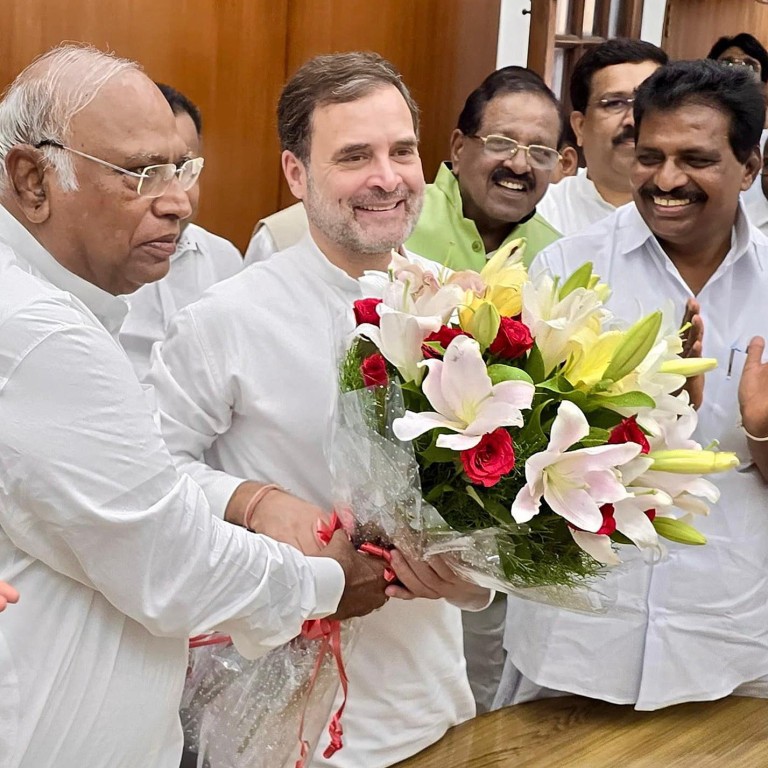
India’s Rahul Gandhi named official leader of the opposition in boost for ‘robust democracy’
- Gandhi’s new role means he will now have the same rank as that of a cabinet minister and be able to challenge PM Modi directly on policy issues
The decision to name Rahul Gandhi the official leader of the opposition in India’s parliament signifies a potential revitalisation of the country’s “robust democracy”, with analysts suggesting this move could balance the political landscape after a decade without a strong opposing voice in the government.
The Indian National Congress, the country’s main opposition party, announced on Tuesday that Gandhi would assume the official role this week after a meeting with their coalition partners.
“In the 18th Lok Sabha, the House of the People shall truly reflect the aspirations of the last person standing, with Rahul Gandhi becoming their voice,” Congress party president Mallikarjun Kharge posted on X on Wednesday.
“As Congress President, I am confident that a leader who has traversed the length and breadth of the country from Kanyakumari to Kashmir, and from Manipur to Maharashtra shall raise the voice of the people – especially the marginalised and the poor.”
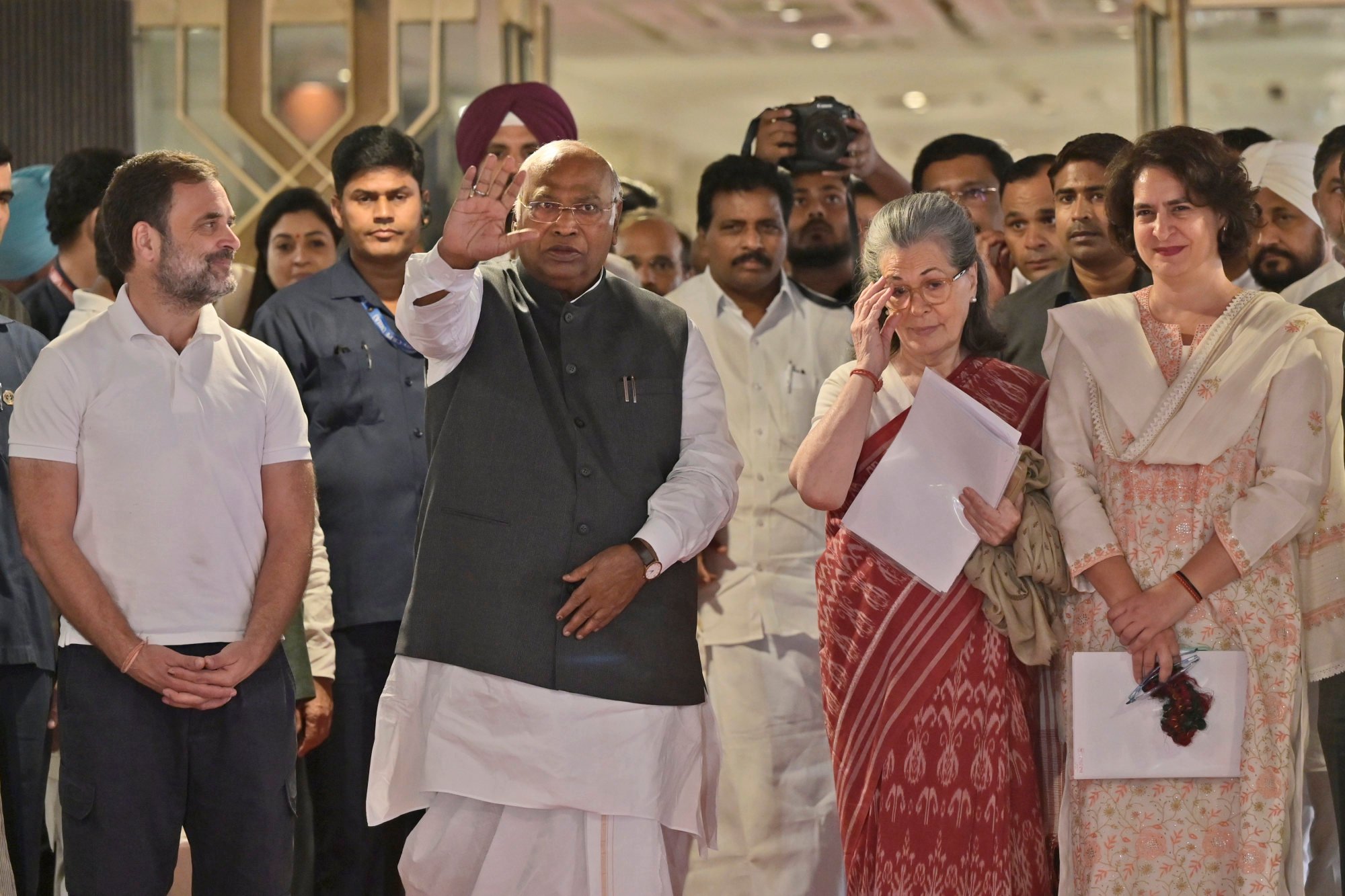
Congress had been unable to secure the position during the two previous governments under the ruling Bharatiya Janata Party (BJP) because it fell marginally short of the requirement of having 10 per cent of the seats in the parliament’s lower house required to name an official opposition leader.
In the country’s recent general election, Congress won 99 seats, nearly double the 52 it earned in 2019, after the opposition INDIA coalition made surprising inroads into the country’s Hindi-speaking belts that had traditionally been the BJP’s stronghold.
Conversely, Prime Minister Narendra Modi’s ruling party, which lost the outright majority it had during his two previous terms, is now dependent on coalition partners.
“Having a Congress party [representative] as the leader of opposition is very significant for a robust democracy. We were missing that in the last two terms,” Priyanca Mathur, professor of political science and international relations at JAIN University.
“We were simply a majoritarian democracy, We had no other voice,” she said. “We have seen Rahul Gandhi emerge as the face of young India because there has been a huge shift in voting.”
With the elevation of Gandhi to the role of an opposition leader, he will now have the same rank as that of a cabinet minister and be able to challenge Modi directly on a gamut of policy issues.
He will also have a say in key appointments, such as India’s election regulator and the chief of the country’s human rights commission.
“That a Congress person will have a say is a very heartening move. We saw the credibility of major democratic institutions being hugely eroded [in the last 10 years],” Mathur said.
Critics and opposition parties have accused Modi of undermining India’s secularism and democratic traditions, saying authorities have clamped down on opposition political leaders, NGOs and human rights activists. The BJP has denied the charges.
Once known as India’s grand old party, Congress was on the cusp of being marginalised by the BJP before the most recent election. Despite its gains this year, Congress still faces an arduous task before it can hope to return to power, analysts say.
“Gandhi can be more assertive because the number of seats for Congress has gone up,” said Yashwant Deshmukh, an independent political commentator.
“But there is a danger of misreading this too much. After 10 years of the BJP’s incumbency, its vote share is still almost double that of the Congress.”
Deshmukh said Congress still had to “revive itself in states where it is in direct confrontation with the BJP”, adding that its gains had mostly been a result of support from around two dozen regional parties that joined the opposition INDIA alliance formed to take on the BJP.
Gandhi has been credited with holding together the alliance’s disparate partners and also crafted a political campaign that played up to voters’ concerns about the BJP modifying the Indian constitution.
The role of an opposition leader would be even more demanding, analysts say.
“He has to keep conflicting alliance partners together,” said Nilanjan Mukhopadhyay, an author and independent political commentator, pointing out that the Trinamool Congress, influential in the state of West Bengal, already had indicated that it wanted Congress to forsake its left-leaning partners.
“How Rahul Gandhi circumvents these issues remains to be seen,” he said. “It is a challenging task also because he will have to devise a parliamentary strategy constantly to make it difficult for the BJP. He has to be very innovative.”
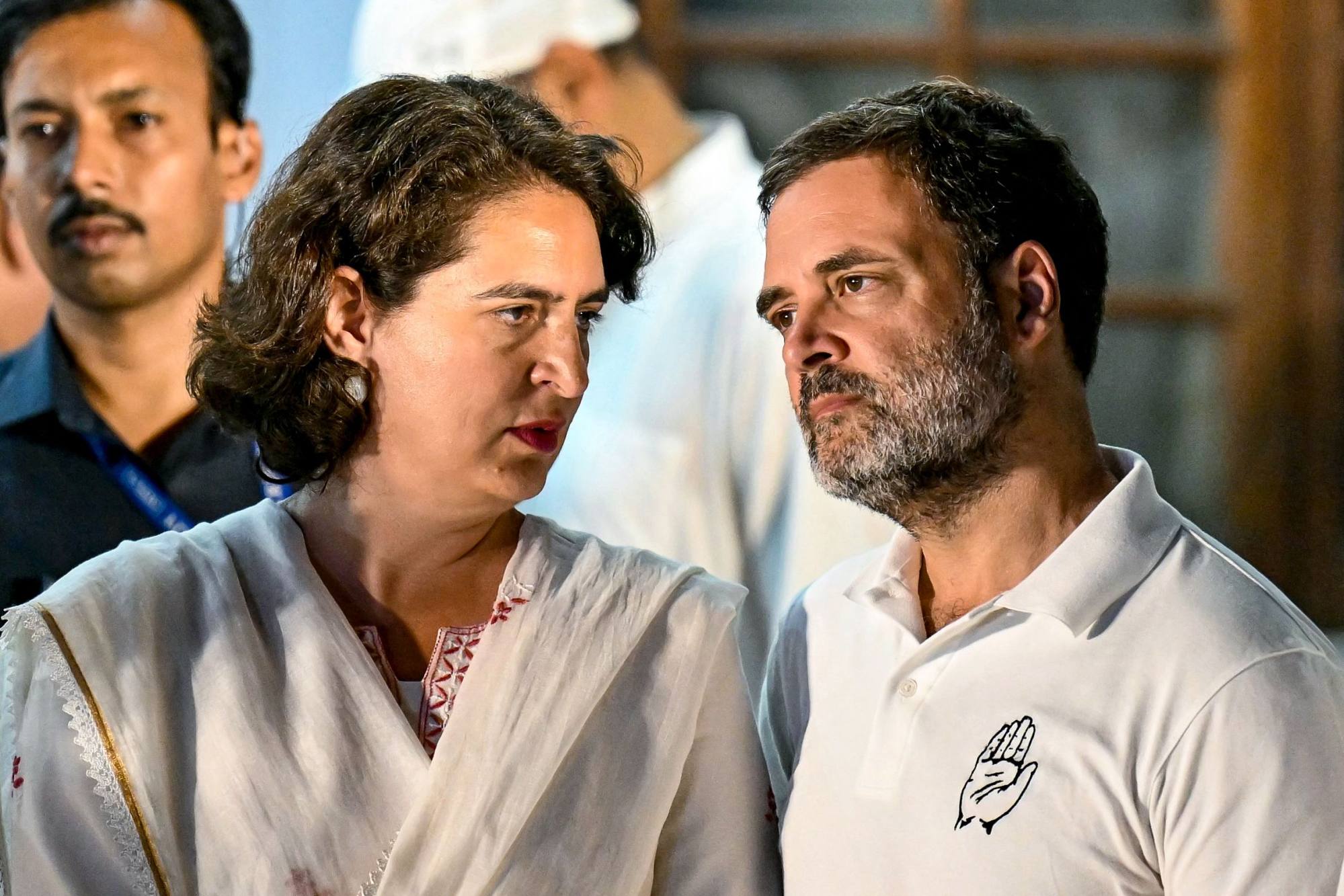
Sibling act
Gandhi is likely to rely on support from his sister Priyanka Gandhi Vadra, who is expected to be elected as a member of parliament if she wins the by-election for Wayanad in the southern state of Kerala.
Gandhi had won both the Wayanad and Raebareli seats in the election, but opted to retain only Raebareli in Uttar Pradesh.
Priyanka spearheaded Congress’ surprisingly successful election campaigns in Uttar Pradesh and other parts of the country’s Hindi-speaking belts. The 52-year-old has often been compared to her grandmother and former Indian prime minister Indira Gandhi.
“Irrespective of the role given to her, she can play a supportive role. She has a good voice and articulates issues in a fairly proper manner,” Mukhopadhyay said.
The Gandhi siblings are expected to present a formidable front to the BJP, which had earlier been able to easily push through key decisions because of a weak opposition.
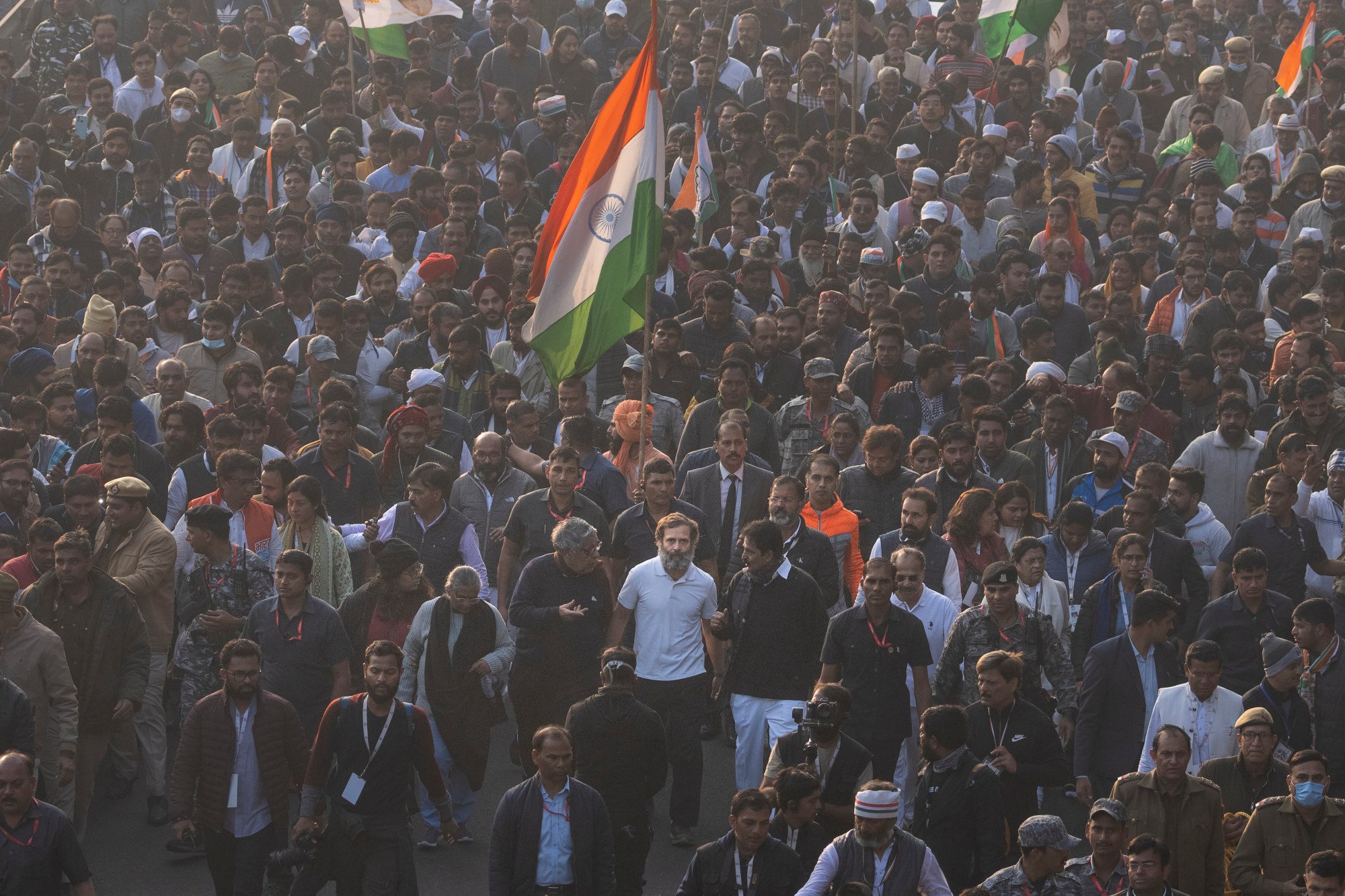
Analysts pointed to how Rahul’s two cross-country marches strengthened his connection with residents, while Priyanka’s speeches during election rallies roused up voters.
Rahul Gandhi had, in 2014 and 2019, refused the position of Congress leader in the lower house of parliament in the two previous terms of the government, said Smita Gupta, an independent political commentator.
“In this election, he has actually contributed to the party’s performance in a substantial way. I think Rahul Gandhi himself felt it was OK to take up the job [of opposition leader],” she said.
Gandhi’s elevation comes at a time when the BJP is facing the heat over the leaking of exam papers for nationwide admission to medical colleges – an issue that fits with one of his key election campaign narratives centring around education for youth and employment.
“The Gandhi siblings did put their heart and soul in the election campaigning and they have definitely succeeded. I am sure that Rahul Gandhi knows that he has the weight of the entire opposition on him. He has to deliver on all those who did not vote for the BJP,” Mathur said.


